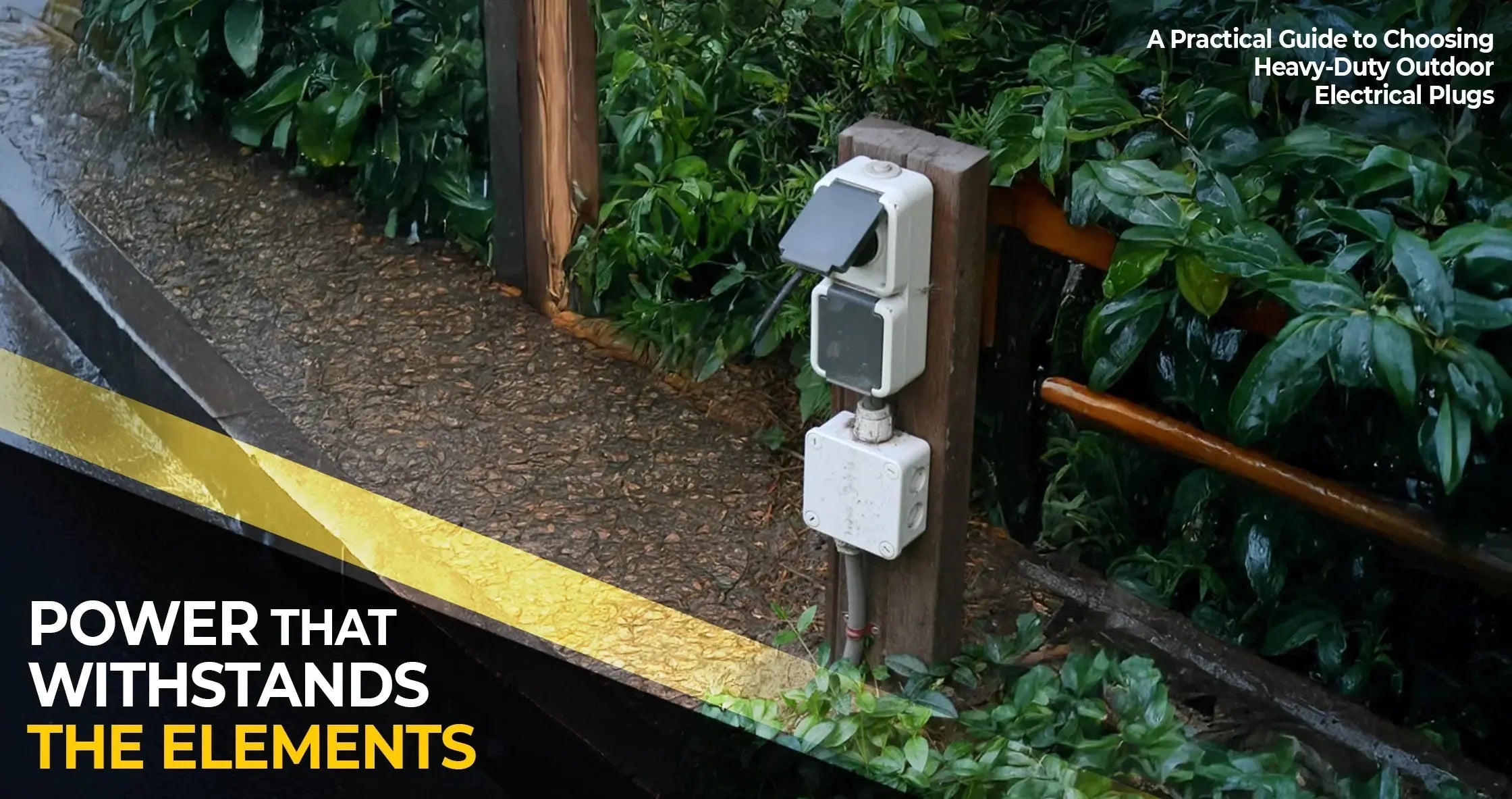When it comes to powering outdoor equipment, choosing the right heavy-duty electrical plugs is crucial. They not only ensure reliability but also enhance safety in various environments. Whether you're dealing with commercial tasks or simply enhancing your home setup, understanding the types and features of heavy-duty electrical plugs can make a significant difference. This guide will walk you through important considerations to make an informed decision.
Understanding Heavy-Duty Electrical Plugs
Heavy-duty electrical plugs are designed to withstand high loads and tough conditions, making them ideal for outdoor applications. These plugs are characterized by their robust construction, which typically includes sturdy materials and advanced features aimed at preventing wear and tear. For instance, the Clipsal Weatherproof ON/OFF Switched Socket Outlet 20A 7 Pins Round White 56C720 is a prime example of a durable plug that is built to last in outdoor settings. These plugs can safely handle higher current ratings, providing users with assurance regarding their equipment's performance.

Benefits of Heavy-Duty Electrical Plugs
Utilizing heavy-duty plugs comes with multiple advantages. Firstly, they ensure safety, as they are designed to minimize the risk of electrical hazards. Secondly, they enhance convenience, allowing you to easily connect and disconnect devices without hassle. Furthermore, many heavy-duty plugs feature weatherproof ratings, meaning they can resist moisture and other environmental factors, making them suitable for various outdoor activities.
Key Features to Look For
When selecting a heavy-duty electrical plug, look for specific features that match your needs. Some important considerations include:
- Current rating: Ensures the plug can handle the required power load.
- Weatherproof rating: Guarantees resistance to water and moisture.
- Safety certifications: Validating compliance with national and local safety standards.
Selecting the Right Outdoor Socket for Commercial Use
Choosing the right outdoor socket for commercial applications involves understanding specific installation requirements. Heavy-duty electrical outlets, like the Wilco Clipsal Weatherproof Angled Plug V:62293 500VAC 32A 4 Pin Orange, play a critical role in ensuring reliable connections for various equipment. These plugs not only enhance functionality but also ensure safety if used correctly in busy commercial settings, like construction sites or outdoor festivals.

Common Uses in Commercial Settings
In commercial environments, heavy-duty electrical plugs are often used to power heavy machinery, lighting systems, and other essential equipment. This can range from providing power to temporary workstations at outdoor events to supporting festival booths requiring high power consumption. Hence, understanding usage is vital for determining the necessary amperage and voltage for your needs.
Installation Tips
Installing outdoor sockets should never be taken lightly. Professionals often recommend using certified electricians to ensure compliance with safety regulations. Additionally, always adhere to local codes but ensure the sod is adequately grounded to protect against electrical faults. Use proper strain relief methods to make sure connections remain secure and prevent wear over time.
Weatherproof Outdoor Plugs
Weatherproof plugs are essential for outdoor deployment as they protect devices against moisture damage. The Clipsal Weatherproof Outlet Plug 5 Pin Round 500V 32A IP66 Orange 56P532 is a great example of how technology has gained capabilities to resist harsh environmental conditions. Such plugs are rated to be used in various conditions without risking failure due to weather, making them ideal for gardens, patios, and outdoor workspaces.
Moisture Management in Outdoor Plugs
The design of weatherproof outlets typically includes secure closing mechanisms that prevent moisture intrusion. Regular checks should be made to ensure that the protective covers are functional, as this is a key feature in prolonging the life of the plug. In cases where plugs are regularly exposed to rain or snow, cleaning off any debris that could impair the waterproofing is crucial.
Choosing Proper Placement
Placement plays an essential role in the usability of outdoor plugs. Installing them in sheltered locations minimizes exposure to adverse weather while ensuring they remain accessible for use. A licensed electrician can help determine the best locations considering power needs and outlet accessibility.
Maintenance of Heavy-Duty Electrical Plugs
Regular maintenance is essential to ensure that heavy-duty plugs function properly over time. Regular checks should involve inspecting plugs for signs of wear, checking that seals remain intact, and ensuring that no moisture has penetrated connections. Address any signs of damage immediately to avoid outages or potential safety issues.
Long-Term Care Suggestions
To extend the lifespan of these plugs, consider the following care suggestions:
- Store heavy-duty plugs indoors when not in use.
- Perform periodic inspections both before and after heavy outdoor events.
- Replace any worn components immediately to maintain safety.
Conclusion
In summary, selecting the right heavy-duty electrical plugs for your outdoor sockets is essential for ensuring safety and functionality. By considering the voltage, durability, and weatherproof features, you can prevent accidents and enhance the efficiency of your outdoor electrical needs. Whether for commercial use or home improvement, investing in quality plugs can significantly impact your outdoor capabilities.
Key Takeaways
- Utilize heavy-duty plugs for safety and functionality in outdoor applications.
- Ensure plugs are weatherproof to prevent moisture-related hazards.
- Regular maintenance maximizes the lifespan of your outdoor electrical equipment.
Frequently Asked Questions (FAQ)
What is the difference between heavy-duty and standard electrical plugs?
Heavy-duty plugs are designed to handle higher current loads and are built to withstand harsh environmental conditions, while standard plugs are more suitable for indoor use with lower current demands.
Can I use indoor plugs outdoors?
No, indoor plugs are not designed for exposure to moisture and can pose safety hazards when used outside.
How often should I check my outdoor plugs?
It is recommended that you inspect outdoor plugs at least twice a year, especially before and after extreme weather events.

